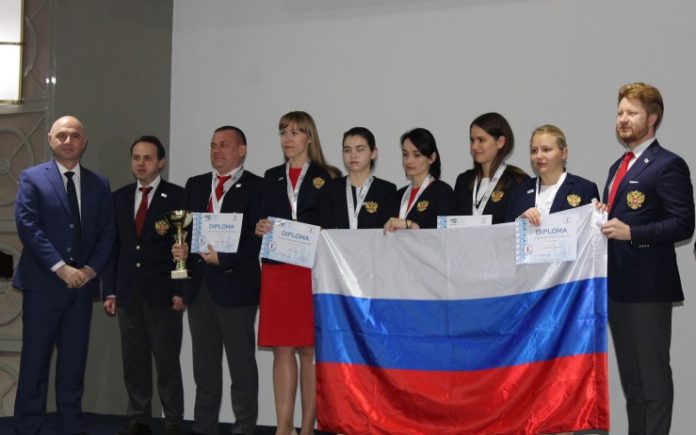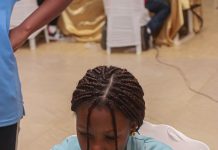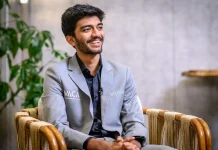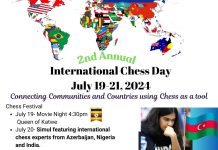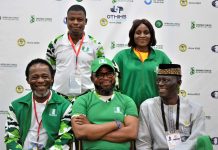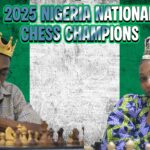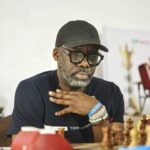The European Team Championship in Batumi ended with the Russian teams’ claiming gold in both open and women’s sections.
One may think that in the women’s tournament Russia smoothly sailed to the victory – after all the team was leading throughout the tournament distance and finished a point ahead of the silver medalists, but in reality, it was not that easy. In the sixth round, Russia drew with Azerbaijan, whereas in the eighth round the team was teetering on the brink of defeat in the match with Armenia. Hadn’t Kateryna Lagno outfoxed her opponent in a theoretically drawing rook-and-bishop-vs-rook endgame the team would have lost two matchpoints and let Georgia catch up. Lagno became the main point-winner in the team – after sweeping three final games Kateryna ended up with 6.5 out of 8. The Challenger of the upcoming Women’s World Championship match Alexandre Goryachkina sealed off the first board (6 out 9); the champion of Russia Olga Girya earned several important victories (5.5 out of 7). Both Valentina Gunina and Alina Kashlinskaya were far from their best but scored +2.
The Georgian team came second. After losing the key match to Russia in the fourth round the home-squad won all others save for a draw with Azerbaijan in round 7. On the first board, a participant of the Candidates Tournament Nana Dzagnidze netted 7 out 9; Meri Arabidze also turned in a fine performance (she suffered her only defeat in the match with Russia). The managers decided to put Nino Batsiashvili at the helm of the Georgia-2 team – one may wonder how it would have played out if she had been a member of the main team.
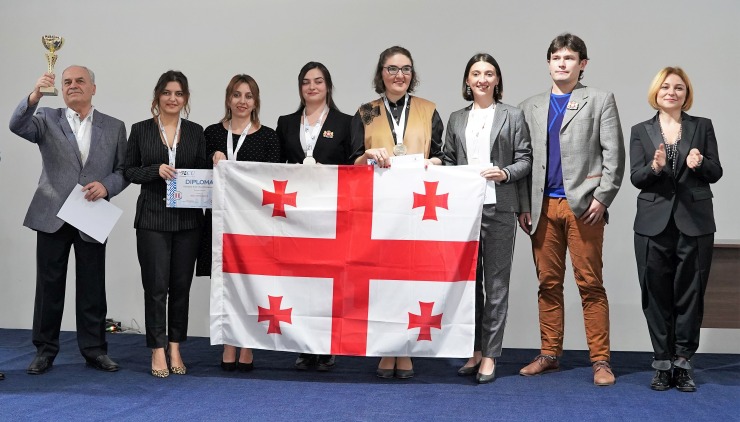
Azerbaijan deservedly took bronze. Young Azerbaijan players drew the matches with both gold and silver medalists and lost just one at the start of the tournament. IM Gulnar Mammadova delivered the best performance (6.5 out of 8).
It was much more close contest in the open section where, in accordance with unspoken rules of team competitions, the winner was determined in the very last minutes of the final round. After Ivan Saric managed to build a fortress in the game with Vassily Ivanchuk, Russia finished one point ahead of Ukraine and England.
As we mentioned in our half-way review, the key match between the favorites was played in the sixth round, right after the day off. Russia pulled out a victory – Dmitry Andreikin outplayed Vassily Ivanchuk in the Najdorf Variation of Sicilian defense on the top board and brought his team a decisive point. However, right after that Russia faltered, drawing two matches with Germany and England. In the first one, the future champion barely escaped thanks to a sparkling although not error-free play by Daniil Dubov in the game with Rasmus Svane.
The final combination of this highly entertaining encounter was immediately tweeted all around the chess world:
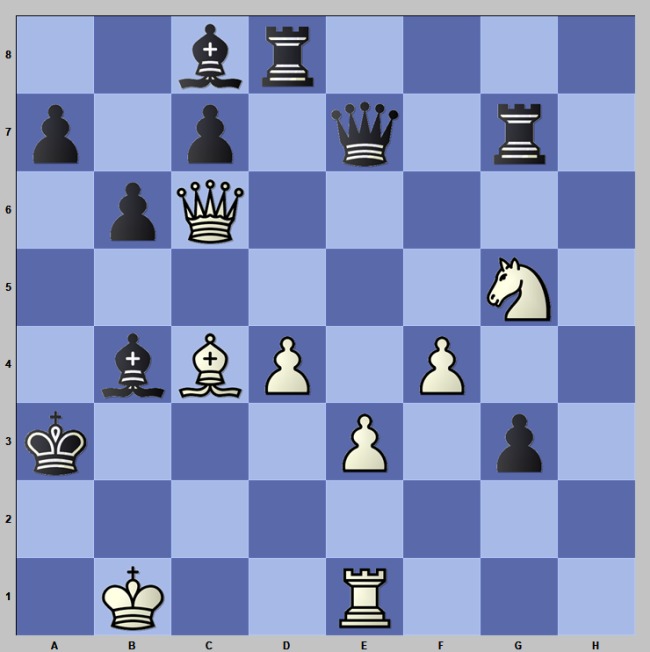
36.Bb3! (the only move) Bd7 37.Qc1+ Kxb3 38.Qc2 Ka3 39.Qa2#
As a result, before the final round, Urkaine stood alongside Russia but had better tiebreaks. However, Ukraine failed to break down Croatia’s resistance, whereas Russia prevailed over a strong Polish team thanks to Kirill Alekseenko’s victory on the third board.
Daniil Dubov, who asked to call him “Joker” after the tournament, put in the best performance in the team-champion (5.5 out 7). The team leader Dmitry Andreikin scored the same amount of points but in eight games. The fatigue accumulated after Grand Swiss Isle of Man had an impact on three other Russian players, but their high level coupled with a little luck helped the team to snatch gold.
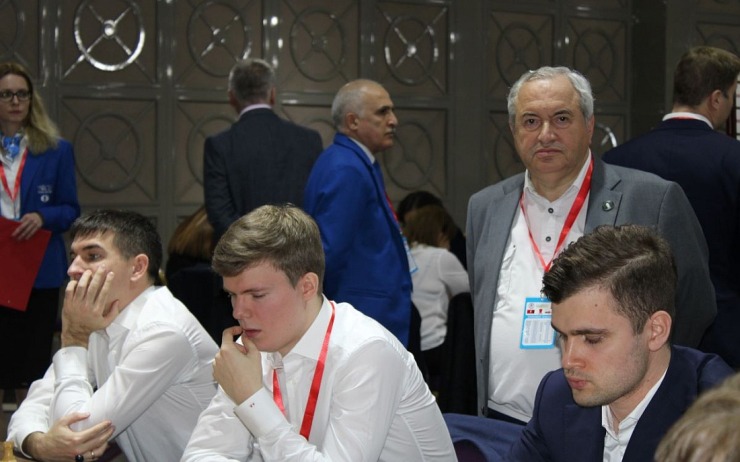
Ukraine tied with England for the second place but was awarded silver due to better tiebreaks. Legendary Vassily Ivanchuk did not spoil the party, scoring 5.5 out 9 on the first board. Vladimir Onischuk (formally a reserve player) notched 6 points in 8 games, although sometimes his positions made his teammates sweat. Unfortunately, a tight tournament schedule also took its toll on the Ukranian team – Alexander Moiseenko played way below his abilities.
Third place by England is in line with pre-tournament expectations – the team had second rating after Russia. It is important to note, that England has played the second team championship in a row virtually without substitutes. Given that McShane, Howell, and Jones were among the participants in Grand Swiss Isle of Man, it was particularly difficult for them to pace up.
Curiously enough, the leaders of Ukraine and England Vassily Ivanchuk and Michael Adams won their first European Team Championship medals in 1992 in Debrecen. Ironically, the first three lines in the final standings back then were taken by Russia, Ukraine, and England.
Most likely Armenia (4th place) and the defending champion Azerbaijan (6th place) had set more ambitious goals before the tournament. The Armenian team suffered from insufficient roster depth, whereas, in the case of Azerbaijan, its leaders Shakhryar Mamediarov and Arkadij Naiditsch were out of shape.
On the other hand, Croatia emerged as a real breakthrough of the event. The Croatian squad finished fifth even though two of its members did not win a single game. This is just another evidence of a very close contest in the tournament.
Source: fide.com



